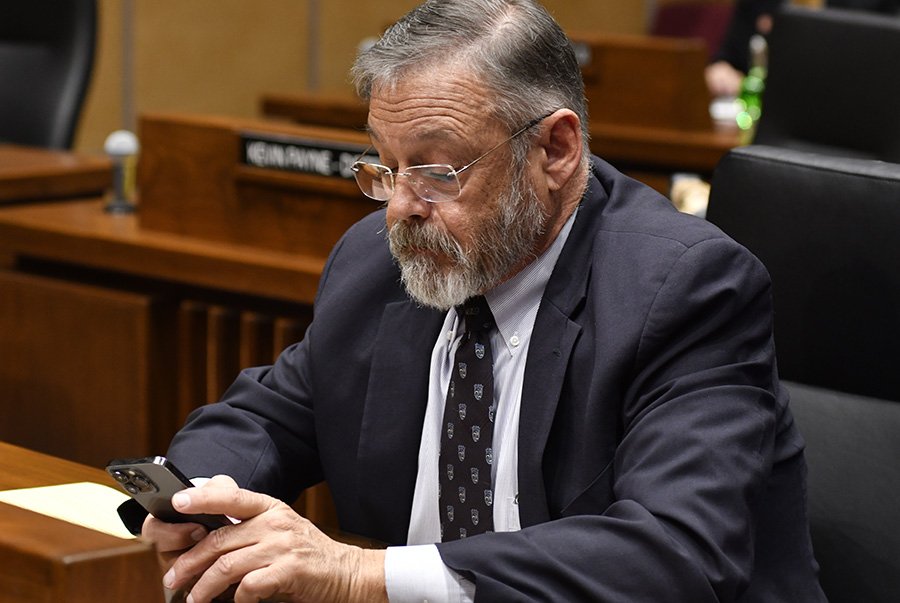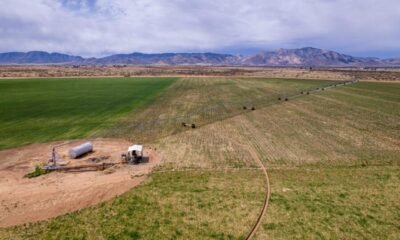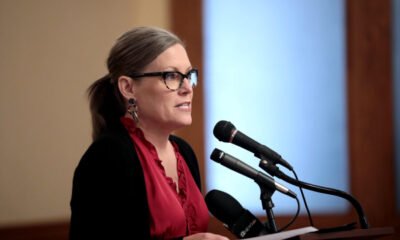Business
Bill Passes Initial Hurdle to Block Hostile Foreign Ownership of Arizona Land

Arizona lawmakers are considering legislation that seeks to ban foreign entities deemed “hostile to the United States” from purchasing land in the state, pending legislative approval.
The bill, which has already passed through the Senate Committee on Federalism, lacks a clear definition of who qualifies as “hostile,” relying instead on the judgment of a legislative majority. This has raised concerns among various advocacy groups, including the Council on American-Islamic Relations of Arizona.
Senator Mark Finchem, the bill’s sponsor, cited his intention to model SB1066 after similar legislation in Arkansas. He mentioned a specific incident involving a Chinese Communist Party-related group purchasing land, but provided no details. “They were subversive with the way they were going about it,” he stated, emphasizing concerns about undisclosed mineral resources on such lands.
Current restrictions on land use already exist, particularly concerning state-owned lands, which cannot be sold or leased to entities not registered to do business in Arizona. However, the new proposal expands restrictions to all land, irrespective of ownership, targeting foreign entities viewed as hostile.
Should the bill pass, sellers would need to verify the buyer’s identity, and if the buyer represents a company, the identification must be submitted to the Arizona Department of Real Estate.
Finchem specifically expressed opposition to property transactions involving the Chinese Communist Party or any entity that poses a threat to the U.S. “I’m not going to go along with the sale of property in this state to anyone who has said ‘Death to America,’” he asserted.
Criticism of the bill was voiced by Azza Abuseif, a lobbyist for CAIR-AZ. She warned that such legislation could undermine Arizona’s economic health and compromise the principles of equity and fairness. “It is a dangerous and discriminatory proposal that should be unequivocally rejected,” she argued.
Abuseif further pointed out that matters of foreign relations fall under federal jurisdiction, not state legislation, stressing that elected authorities should represent the interests of all citizens, not just select groups.
In a potentially related matter, she mentioned the issue of a Saudi Arabian company owning land in Arizona for farming, which has raised concerns due to water usage issues. The state has already acted to revoke certain leases due to unregulated groundwater consumption.
While discussing the bill, Abuseif highlighted the contributions of immigrants and dual citizens to Arizona’s society. “SB1066 stigmatizes these communities, fostering fear and alienation,” she said.
Senator Kevin Payne countered her perspective, questioning why foreigners are allowed to own land in other countries but not in the U.S. Finchem, unfazed by these concerns, insisted that the state has the right to protect itself from “foreign adversaries.”
Several senators expressed apprehension about the vagueness in defining “hostile.” Senator Priya Sundareshan emphasized the need for clarity, fearing potential racial profiling that could arise from the bill’s implementation.
Nevertheless, Finchem dismissed such concerns, reiterating that the determination of hostility would involve thorough legislative debate.
He pointed out that the only opposition testimony during the committee hearings came from CAIR-AZ, mentioning past allegations against the organization. However, there is no substantiated link between CAIR and the 1993 World Trade Center bombing incident, despite references made in anti-terrorism discussions.
The proposed legislation aligns with measures taken in other states, like Arkansas, which prevent foreign interests in agricultural lands. When asked about the bill, Governor Katie Hobbs opted not to comment, leaving its future uncertain.
















